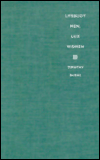

 |

|

Sold Out
Book Categories |
| Acknowledgments | ||
| Introduction | 1 | |
| 1 | Cleanliness and "Civilization": Hygiene and Colonialism in Southern Africa | 17 |
| 2 | Education, Domesticity, and Bodily Discipline | 35 |
| 3 | Buckets, Boxes, and "Bonsella": Precolonial Exchange, the "Kaffir Truck" Trade, and African "Needs" | 63 |
| 4 | Manufacturing, the "African Market," and the Postwar Boom | 91 |
| 5 | The New Mission: Advertising and Market Research in Zimbabwe, 1945-1979 | 125 |
| 6 | Bodies and Things: Toiletries and Commodity Culture in Postwar Zimbabwe | 166 |
| Appendix: Budgetary Charts, 1957-1970 | 217 | |
| Notes | 229 | |
| Bibliography | 271 | |
| Index | 293 |
Login|Complaints|Blog|Games|Digital Media|Souls|Obituary|Contact Us|FAQ
CAN'T FIND WHAT YOU'RE LOOKING FOR? CLICK HERE!!! X
 You must be logged in to add to WishlistX
 This item is in your Wish ListX
 This item is in your CollectionLifebuoy Men, Lux Women: Commodification, Consumption, and Cleanliness in Modern Zimbabwe
X
 This Item is in Your InventoryLifebuoy Men, Lux Women: Commodification, Consumption, and Cleanliness in Modern Zimbabwe
X
 You must be logged in to review the productsX
 X
 X

Add Lifebuoy Men, Lux Women: Commodification, Consumption, and Cleanliness in Modern Zimbabwe, How do people come to need products they never even knew they wanted? How, for example, did indigenous Zimbabweans of the 1940s begin to believe that they required Lifebuoy soap? Offering a glimpse into the intimate workings of modern colonialism and glob, Lifebuoy Men, Lux Women: Commodification, Consumption, and Cleanliness in Modern Zimbabwe to the inventory that you are selling on WonderClubX
 X

Add Lifebuoy Men, Lux Women: Commodification, Consumption, and Cleanliness in Modern Zimbabwe, How do people come to need products they never even knew they wanted? How, for example, did indigenous Zimbabweans of the 1940s begin to believe that they required Lifebuoy soap? Offering a glimpse into the intimate workings of modern colonialism and glob, Lifebuoy Men, Lux Women: Commodification, Consumption, and Cleanliness in Modern Zimbabwe to your collection on WonderClub |